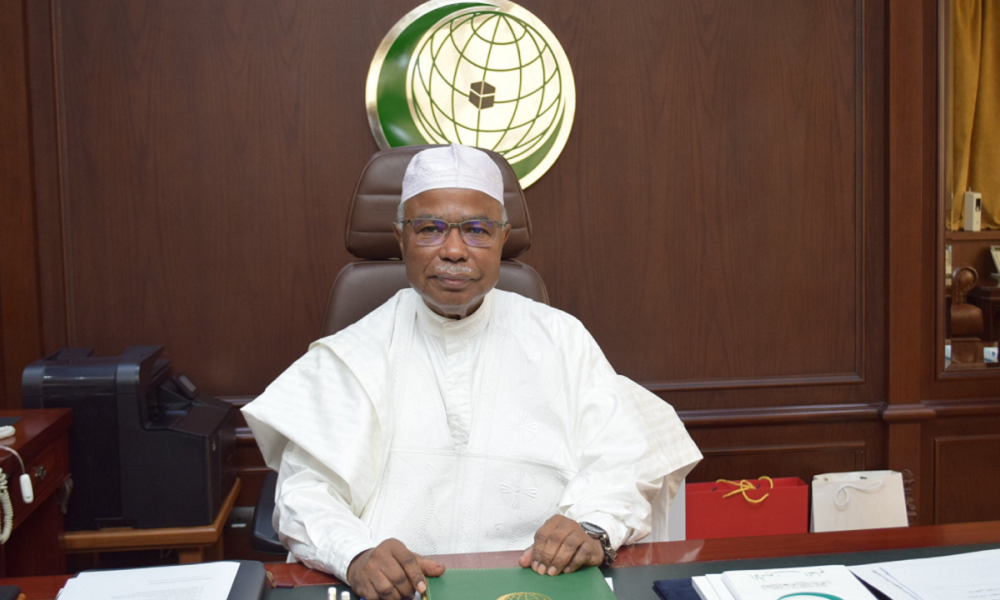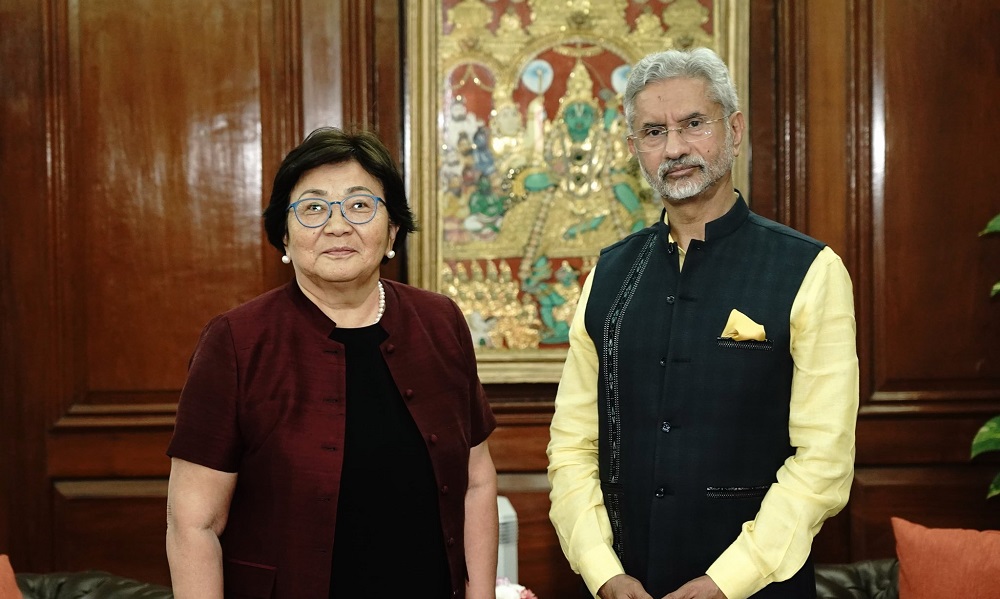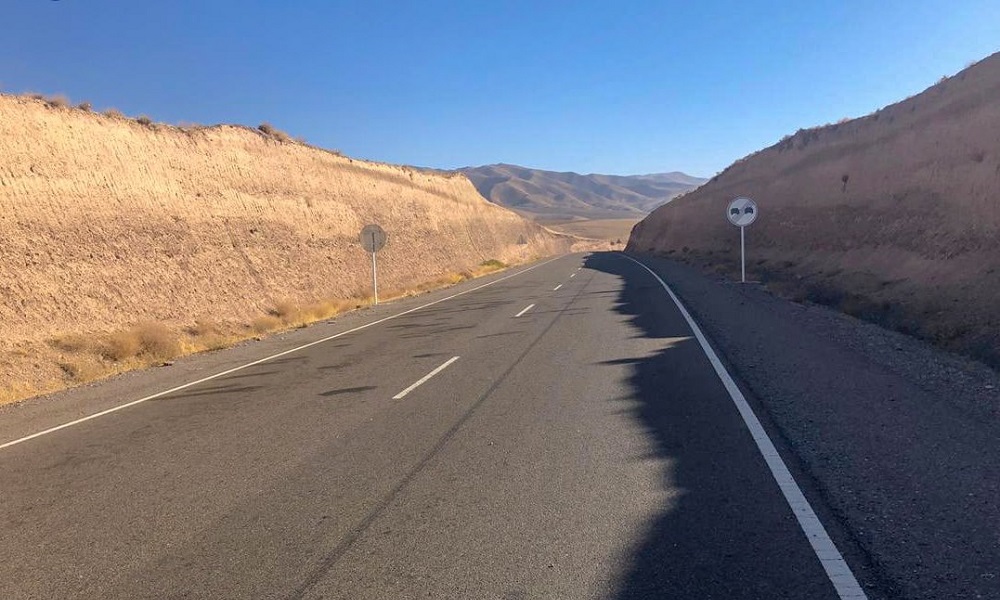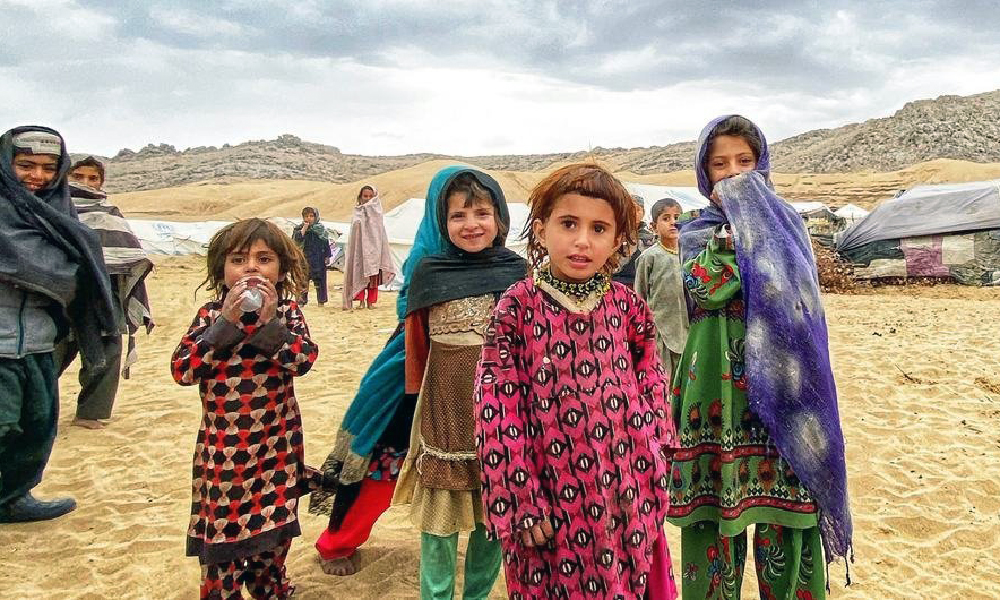Latest News
OIC urges IEA to revisit ban on Afghan women working with UN

The Organization of Islamic Cooperation (OIC) has called on the Islamic Emirate of Afghanistan (IEA) to revisit the “unacceptable” decision to ban women from working with the United Nations.
“The new edict will intensify the successive restrictive measures imposed on women and girls, including banning them from education, government jobs, and from working for non-governmental organizations,” OIC said in a statement.
It said that the ban is a counter-productive decision with potentially consequential ramifications not just for Afghan women, but more significantly for UN humanitarian operations across the country.
“The General Secretariat calls on de facto authorities to revisit this unacceptable decision and allow Afghans, both men and women, to partake in the reconstruction of their country after decades of violent conflict and socio-economic vulnerability,” the statement said.
Meanwhile, EU foreign policy chief in a statement said that the decision places women in an increasingly vulnerable position and have “direct and life-threatening repercussions, as banning women from work disrupts the delivery of humanitarian aid, basic needs and services to large parts of the entire Afghan population, including women, children and men.”
Josep Borrell noted that this is happening while Afghanistan continues to face one of the worst economic and humanitarian crises in the world, with more than 28 million or two thirds of the population in need of humanitarian assistance and millions of Afghans already on the verge of famine.
“The EU calls upon the Taliban (IEA) to deliver on their promises and prove their ability to respect and protect the human rights and provide basic services for the entire population of Afghanistan, in line with their earlier statements and promises,” Borrell said.
Latest News
UN envoy meets Indian foreign minister to discuss Afghanistan

Roza Otunbayeva, the UN Secretary General’s Special Representative for Afghanistan, met with the Indian Foreign Minister Subrahmanyam Jaishankar in New Delhi and discussed issues related to Afghanistan, it was announced on Thursday.
During the meeting, Otunbayeva thanked India for “its critical humanitarian support and longstanding friendship for the Afghan people” and discussed the importance of regional and international cooperation to address prevailing challenges in Afghanistan, UNAMA said on X.
Jaishankar also said on X that the sides exchanged views on the current situation in Afghanistan.
“Underlined that India has provided wheat, medicines, pesticides and school supplies. Appreciate the role of UN agencies as partners in these endeavors,” he said.
Latest News
Traffic accident leaves one dead, four injured in Herat

Local officials in Herat say one person was killed and four others injured due to a traffic accident in Karukh district of the province.
The accident took place on Thursday night at 8:pm.
The injured individuals have been taken to Herat’s regional hospital by the personnel of Karukh district police headquarters, local officials said.
Latest News
250,000 Afghan children need homes, food, education after returning from Pakistan

In the wake of an announcement by Pakistan that it intends to start Phase Two of deportations of Afghans, Save the Children said Thursday that almost a quarter of a million Afghan children need proper homes, food, and access to education after returning from Pakistan in the past seven months.
In a statement issued by the organization, Save the Children said more than 520,000 Afghans have returned from Pakistan since September last year, after Pakistan said all undocumented foreigners must leave the country voluntarily or face deportation.
Nearly half of all the returnees are children.
A survey by Save the Children of families who have returned to Afghanistan – and the communities who are hosting them – found that nearly all (99%) do not have enough food for the next one to two months.
About three-quarters of returnees and families in host communities reduced portion sizes or restricted the food consumption of adults so small children could eat.
About 40% of returnees and host families surveyed had to borrow food or rely on friends and relatives for at least three days a week – with 13% of returnees and 9% of host families saying they had to get food from others every day.
Almost 8 million children in Afghanistan – or one in three – are facing crisis levels of hunger.
Nearly one in six families live in tents, according to the survey, with most returnees having little or no means to support themselves.
Only a third had managed to bring assets back with them from Pakistan.
Nearly half (47%) said there were no jobs available in Afghanistan, with 81% saying that they do not have any skills that could lead to employment.
Almost two thirds (65%) of children who have returned to Afghanistan have not been enrolled in school. The majority (85%) told Save the Children that they don’t have the necessary documents to register and enroll in school.
In Pakistan, more than two thirds of these children had been attending school.
Arshad Malik, Country Director for Save the Children in Afghanistan, said: “Families are returning to Afghanistan with virtually nothing. Most are relying on relatives or friends to support them – and these communities already have little to support themselves.
“The return of so many people is creating an additional strain on already overstretched resources. Children need support and stability. Many undocumented Afghan children were born in Pakistan – Afghanistan is not the place they call home,” he said.
He added that in addition to the returns from Pakistan, 600,000 Afghans arrived from Iran last year. Also, “families have been forced from their homes by multiple disasters, including the series of earthquakes in Herat and the ongoing drought. Afghanistan is also now home to the second largest number of internally displaced people in the world – or roughly 1 in 7 people,” Malik said.
According to him, Afghanistan not only needs urgent funding from international donors and governments – but also needs long term, community-based solutions to help all displaced Afghans rebuild their lives.
-

 Sport4 days ago
Sport4 days agoACL fever grows as fixtures finalized
-

 World4 days ago
World4 days agoUS will not take part in any Israeli retaliatory action against Iran
-

 Latest News4 days ago
Latest News4 days agoOver 50 people dead in traffic accidents over Eid
-

 Latest News4 days ago
Latest News4 days agoUS identifies Kabul airport suicide bomber
-

 Latest News4 days ago
Latest News4 days agoGood rains enable DABS to increase power production in Kabul
-

 Business4 days ago
Business4 days agoAfghanistan-Kazakhstan chamber of commerce opens in Herat
-

 World3 days ago
World3 days agoIsraeli military vows response to Iran attack as calls for restraint mount
-

 Latest News3 days ago
Latest News3 days agoPakistani police give Afghans in Balochistan one day to leave
























